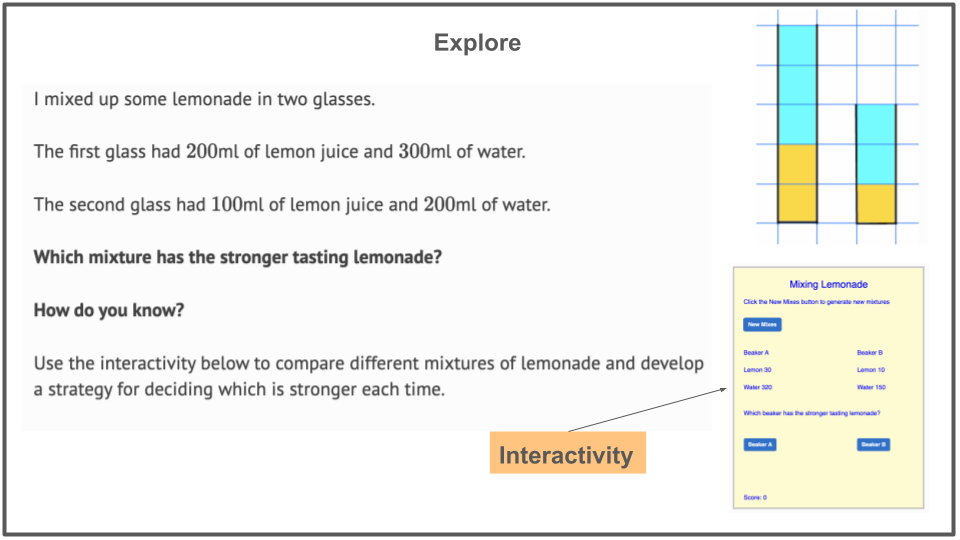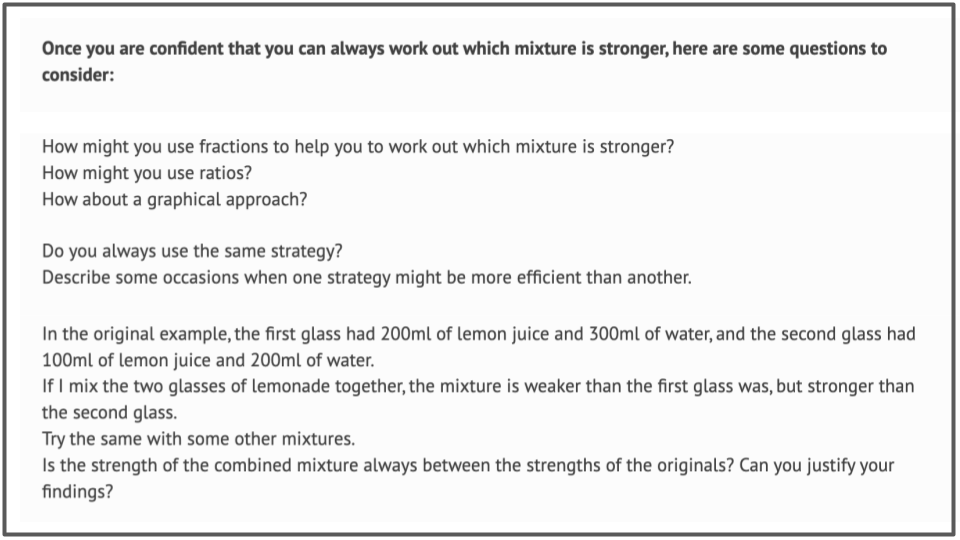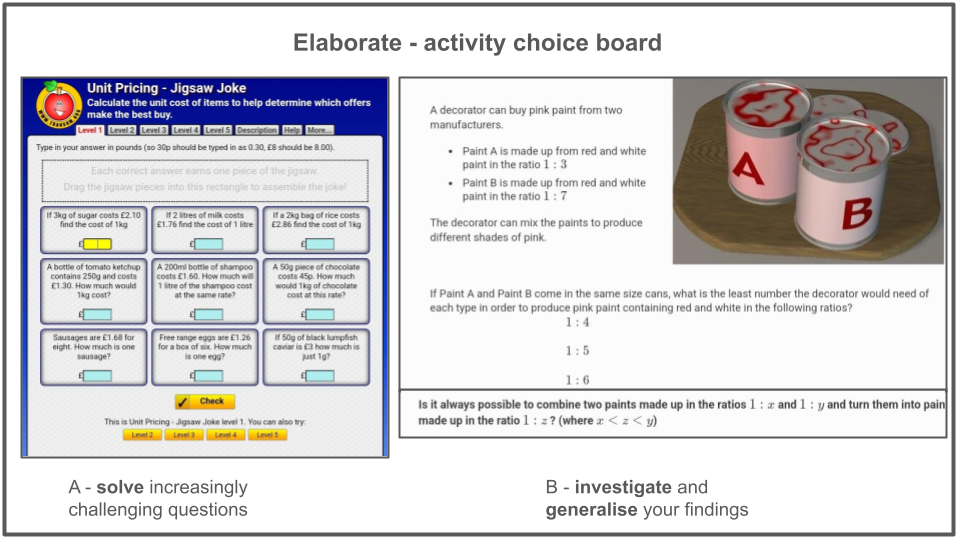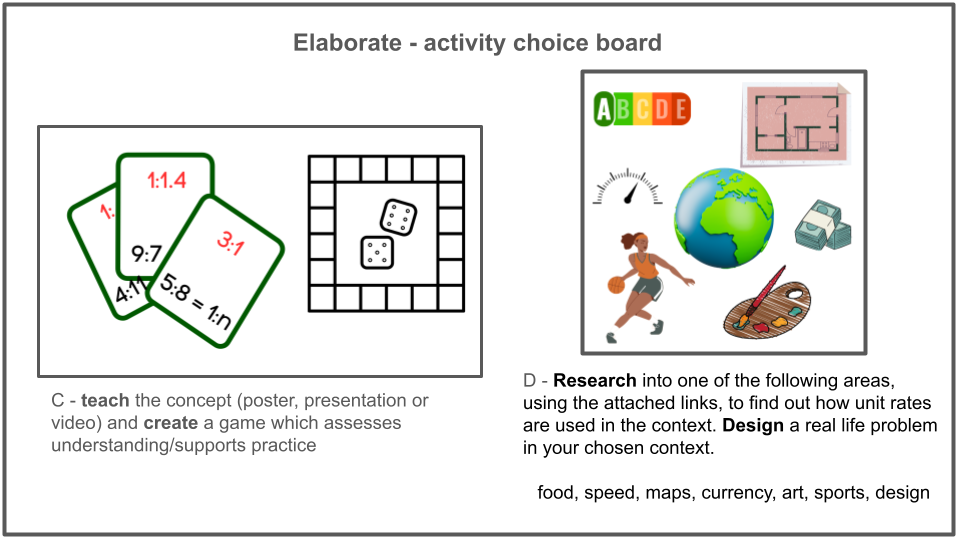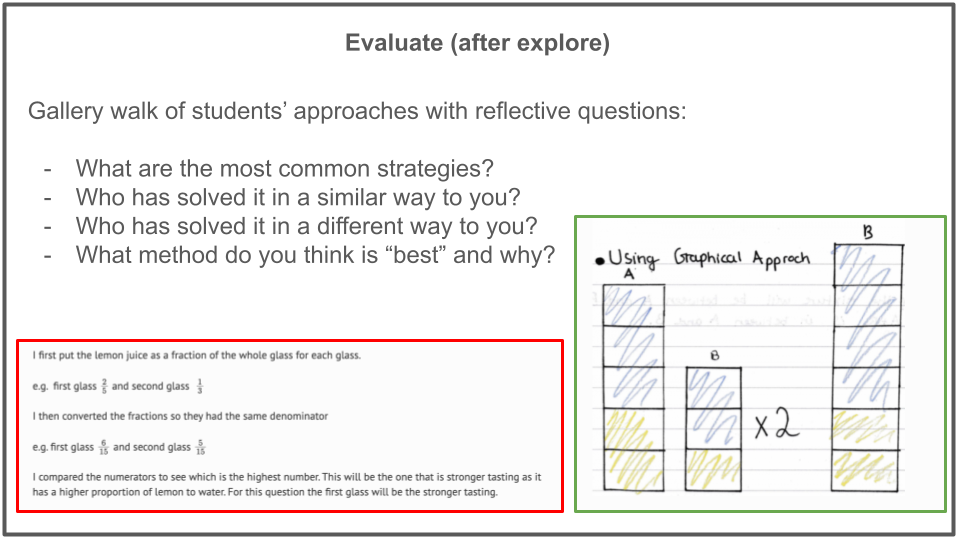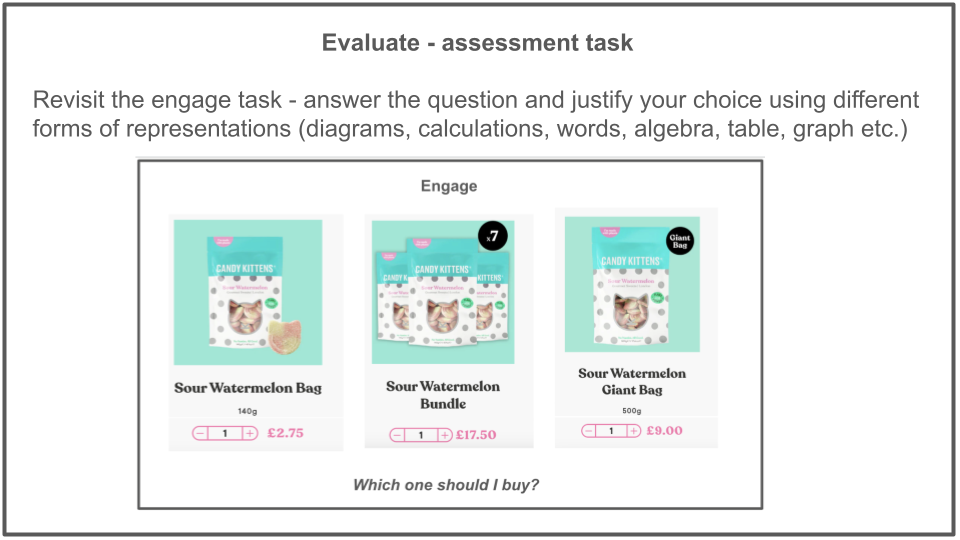Effective Inquiry-Based Lesson Planning using the 5E Model
- Teaching MYP Maths
- Sep 22, 2024
- 3 min read
If you are looking for a framework to help you plan inquiry-based lessons in a structured way, the 5e model may be just what you need. This post will explain the phases of the model and how they align with the IB approaches to teaching (inquiry-based, concept-driven, contextualised, differentiated, collaborative and informed by assessment). Alongside each phase are some reflective questions to support you in planning and an example learning experience (for MYP Maths focusing on the concept of unit ratios).
Overview of the 5E Model
The 5E Model is a structured approach that breaks learning experiences (a lesson or a series of lessons) into five key phases:
Engage: Stimulate curiosity and activate prior knowledge.
Explore: Allow students to investigate concepts through hands-on experiences.
Explain: Clarify concepts, formalise learning, and introduce key ideas.
Elaborate: Encourage deeper application of knowledge in new contexts.
Evaluate: Assess student understanding and encourage reflection.
Let’s break down how each phase can incorporate different MYP elements and questions to consider when planning.
Engage
Here the goal is to spark students’ curiosity and connect the lesson to their prior experiences. This can link to the approach to teaching of “contextualised” by using a provocation that connects students’ learning to real-life applications or reveals interdisciplinary links. Furthermore, this opportunity of identifying prior knowledge connects with “informed by assessment”.
Questions to consider when planning:
What provocation (object, image, video, person, text) can I use to generate thinking and authentic questions?
What real-life scenario can I introduce to make this concept relevant?
How can I activate students’ prior knowledge to identify understandings or misconceptions?

www.candykittens.co.uk
Explore
Here students actively investigate, so the phase is naturally “inquiry-based”. This exploration can be supported with thinking routines or remain open to students' emerging lines of inquiry. It is a great opportunity to develop a shared understanding by having students work in small groups, making the process “collaborative”.
Questions to consider when planning:
What case studies or contexts will support an inductive approach to understanding the relevant concept?
How can I encourage students to think critically and make their own observations?
What check-in points can be added to the structure of this phase to help students know if they are on the right track and to inform me if I need to intervene - with stretch or support prompts?
https://nrich.maths.org/problems/mixing-lemonade
Explain
In this stage, the developing understanding can be shared and organised with a focus on constructing an understanding of the big picture, in other words it is “concept-driven”. Here the teacher's role is to formalise the understanding with an input of subject-specific vocabulary, by modelling examples or explicitly revealing the connection between prior learning and new understanding.
Questions to consider when planning:
How can I effectively bring together students’ findings?
What key vocabulary needs to be introduced or reinforced?
How can I model key processes?
What examples will best consolidate key concepts?
How can I check for understanding through this phase?

Elaborate
In this phase, students apply their understanding or transfer their knowledge to different contexts. For this to be purposeful for all students, there needs to be “differentiated” learning opportunities for the students.
Questions to consider when planning:
What is the best next step for students who have revealed gaps in understanding?
How can I design, or find, activities that require students to apply their knowledge in more complex or unfamiliar situations?
How can I offer choice in what this part of learning looks like?
A - https://www.transum.org/Maths/Puzzles/Jigsaw/Unit_Pricing.asp?Level=1
B - https://nrich.maths.org/problems/mixing-paints
Evaluate
This phase is about assessing student understanding and providing opportunities for self-reflection. This should not be left to the end of the “cycle” but built in throughout, during and after each stage. In this way, each phase can be “informed by assessment”.
Questions to consider when planning:
How will I assess students’ prior understanding in the engage/explore phases and use this to inform my explanation?
What formative assessments can I use to check for misconceptions or gaps in understanding after explaining?
How can I encourage students to reflect on their learning, self-assess and make effective decisions based on this in the elaborate stage?
1 - https://nrich.maths.org/problems/mixing-lemonade
2 - diagnosticquestions.com, https://donsteward.blogspot.com/2019/02/best-buys.html
3 - www.candykittens.co.uk
Conclusion
Using the 5E Model provides a clear and structured approach that promotes inquiry and collaboration through the meaning-making process. By following the five phases—Engage, Explore, Explain, Elaborate, and Evaluate—teachers can guide students through a meaningful learning experience that connects conceptual understanding to content-based knowledge and procedural skills.
Asking reflective planning questions at each phase helps to ensure that lessons are student-centred, but also clarifies the transitioning role of teacher as facilitator, instructor and guide. Through this process, students not only learn how to solve content specific problems but also develop broader approaches to learning skills as they reflect (self-management), work with others (social), address problems creatively and critically (thinking), apply understanding in context (research) and share their process (communication).
.png)

